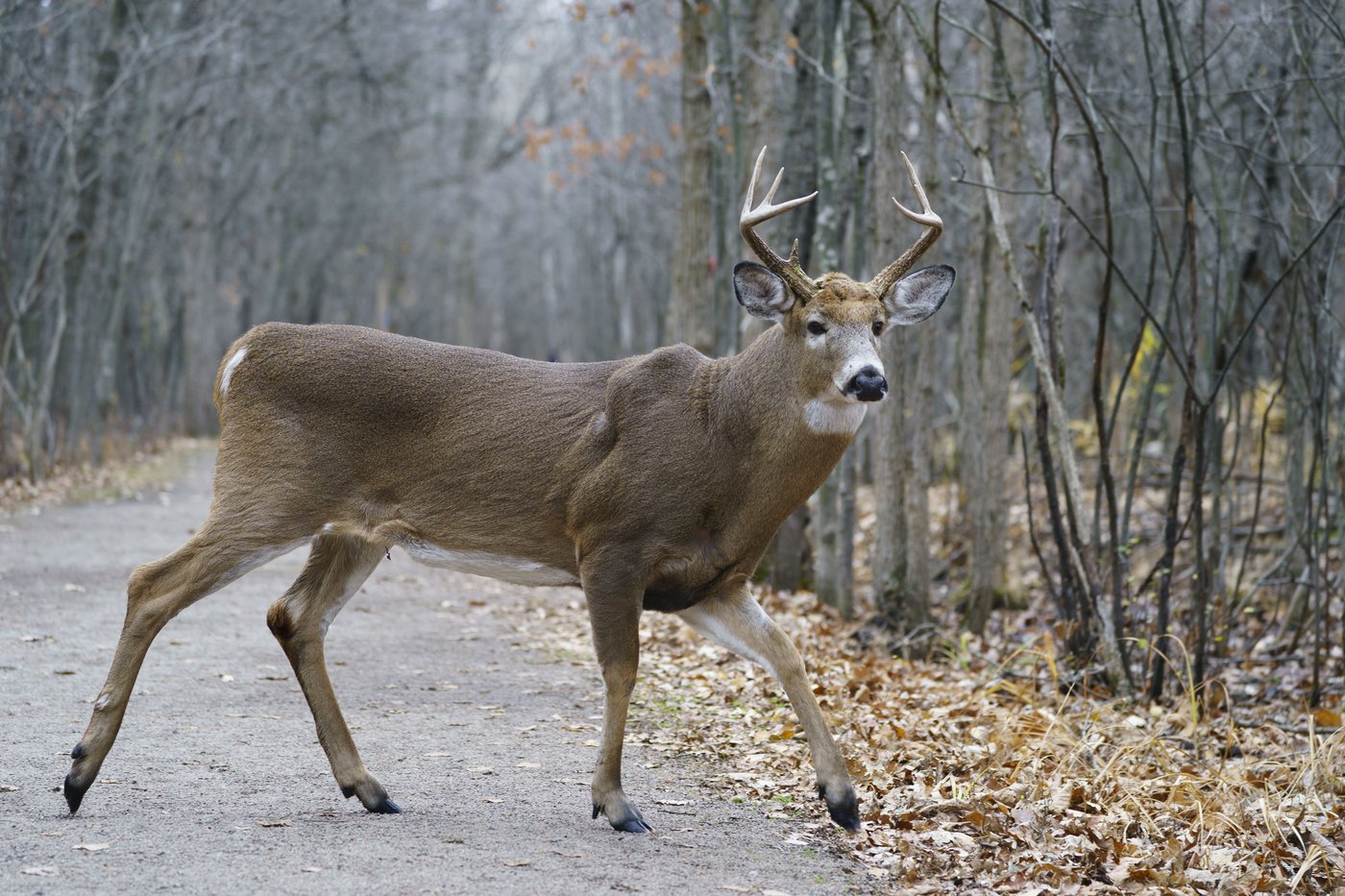MONTREAL — A Montreal suburb will go ahead with a long-awaited white-tailed deer cull in a local park that has become overrun with them.
The City of Longueuil, just south of Montreal, has been trying to carry out a cull since 2020, but faced strong backlash and legal challenges from animal rights groups over the fate of the deer that reside in Michel-Chartrand Park.
It said it has received a provincial Environment Department permit to proceed with the operation.
The permit is valid until mid-February 2025 and the city said in a statement the operation will be carried out by a professional company using air rifles and will take place sometime this fall.
It was the last step in carrying out the operation, which Longueuil officials said is needed to restore ecological equilibrium to the green space as the number of white-tailed deer in the park has tripled in recent years — from 32 in 2017 to 114 as of this year.
It is only suitable for about 15 deer or so.
Authorities have also noted the number of dead deer in the park rose from 28 in 2021 to 52 in 2023.
The city has considered other options, including sterilization, birth control or even transporting the deer to a refuge, but ultimately experts concluded the only viable short-term solution was to kill the animals.
Legal challenges wound up in October 2023, when the province’s Court of Appeal found that authorizing the cull was within the city’s legal rights.
The city has repeatedly said the white-tailed deer are contributing to road accidents, increasing the risk of Lyme disease, travelling to nearby residential areas in search of food in addition to stripping vegetation in parks.
Longueuil said the precise date of the cull will not be communicated in advance to ensure it goes smoothly, and when it takes place the area will be secured and closed temporarily to locals.
Previously, the city has tried to carry out the operation in the fall and donate the meat to local food banks.
Last year, city officials said they were hopeful the cull will be a one-time operation. They said once the population is reduced, they will able to employ different methods to control it without hunting.
This report by The Canadian Press was first published Oct. 14, 2024.
Sidhartha Banerjee, The Canadian Press







